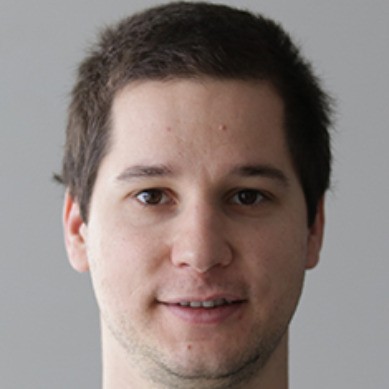Objectives
Download the slides of the Presentation here
Abstract:
Even though most engineering solid materials appear homogeneous at the structural level, their mechanical behaviour is strongly dependent on phenomena occurring at their microstructure. Fibre-reinforced composites, advanced high-strength steels and metamaterials are typical examples of materials with complex microstructures driving their structural response. Finite element simulations can be performed at different scales to predict their multi-scale behaviour.
For instance, coupled multi-scale models based on computational homogenisation (FE2) allow for simulations that link micro- and macro-scales on the fly. Their computational cost is enormous, compared to standard finite element simulations, but FE2 models are well suited for parallel computing. In addition, this concept is flexible enough to deal with complex phenomena such as phase transformation and intergranular fracture in metals, or deformation-mode coupling in metamaterials, without the need to postulate macro-scale constitutive models a priori. Moreover, the macro-scale continuum formulation can be enhanced to account for strain gradients in the scales-transition, with second-order computational homogenisation. These topics will be addressed in the first part of the talk.
In the case of laminate composites, meso-scale models are usually employed to predict the progressive failure of structural details. Each of the plies is modelled as an anisotropic continuum, where plasticity, strain-rate dependency and damage mechanisms are considered. Cohesive elements with appropriate traction-separation laws are introduced between plies to capture delamination. In the second part of this seminar, invariant-based visco-elastic–visco-plastic equations combined with a finite-strain smeared-crack-model are presented as a step forward to predict the mechanisms involved in the mechanical response of composite materials.

Short Bio:
Igor André Rodrigues Lopes is a post-doctoral researcher in INEGI – Institute of Science and Innovation in Mechanical and Industrial Engineering, Porto, Portugal. He completed his Master in Mechanical Engineering in 2013 (17/20) and obtained the PhD degree in Mechanical Engineering in 2019 (Cum Laude), both in the University of Porto, Portugal. He specialised in Computational Mechanics, and he is an expert in the formulation and numerical implementation of multi-scale models based on computational homogenisation, including parallel computing, and in the constitutive modelling of elasto-plasticity and damage. His thesis has been awarded the Best PhD Thesis in 2019, by the Portuguese Association of Theoretical, Applied and Computational Mechanics (APMTAC). From 2020 to 2022, Igor was a post-doctoral researcher in the Faculty of Engineering of the University of Porto, where he participated in the Clean Sky 2 project TREAL - Thermoplastic material allowable generation using a REliability-based virtuAL modeling platform.
Since 2022, he joined INEGI to work in the Horizon Europe Project DIDEAROT – Digital Design strategies to certify and mAnufacture Robust cOmposite sTructures, where he is also contributing to INEGI’s industrial affiliates program: Advanced analysis models for polymer composites. He is the author of 15 articles published in peer-reviewed international journals, 12 of them published since 2021. He delivered more than 15 presentations in international congresses, 1 of them after an invitation as a finalist in the ECCOMAS PhD Olympiad, and has published 1 conference paper. He has been the (co-)supervisor of 7 MSc and 4 PhD students. Igor has been a reviewer in 13 different international journals and is the guest editor of a special issue in the Engineering Computations journal. He has examined 2 master’s dissertations in 2021 and 1 PhD thesis in 2023. He was an organiser of the ECCOMAS Young Investigators Conference (YIC) 2023, in Porto, with more than 300 participants.

